This year's grand gaming event saw vendors competing with AI implementations
![]() 08/06 2024
08/06 2024
![]() 504
504
On the afternoon of July 29, the 21st ChinaJoy (China International Digital Entertainment Expo) successfully concluded.
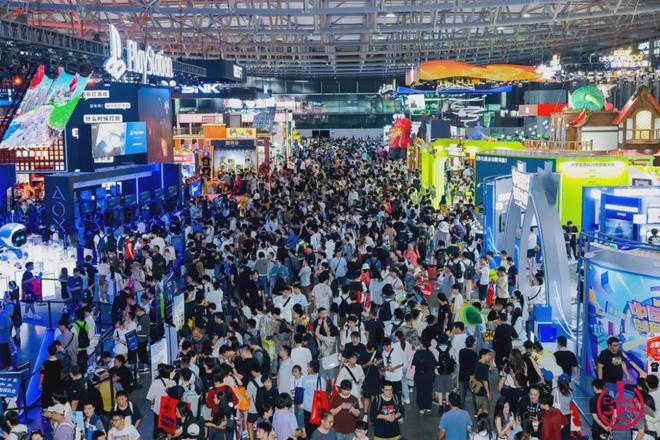
As a bellwether of China's digital entertainment industry, ChinaJoy has evolved from scratch to become one of the most renowned and influential annual events in the global digital entertainment sector.
At this year's ChinaJoy, the most striking impression I had was the omnipresence of the term 'AI'.
01
Racing to Enter the Field
'Last year, people were still discussing the experimental results and application prospects of 'game + AI' at the forum. Just one year later, AI has emerged from the laboratory and officially taken up its duties, becoming an indispensable new type of productivity.' Pang Dazhi, Vice President of Netease, stated at ChinaJoy.
According to the 'Report on the Development Prospects of AIGC in China's Game Industry,' over 60% of the top 50 game enterprises in China, measured by revenue, have explicitly deployed in the AIGC field with substantive actions.
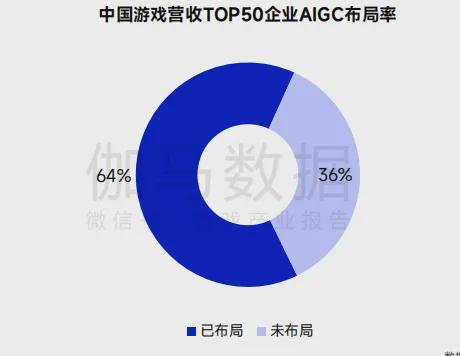
Unlike many game companies that only recently began emphasizing AI applications, leading companies like Netease, Tencent, and 37 Interactive had already laid the groundwork and seized an early advantage.
As early as 2016, Tencent established its AI Lab and launched the one-stop platform Game AIR that same year. In 2017, Netease completed its early AI deployment, establishing multiple research institutes and labs, including NetEase Fuxi and NetEase Interactive AI Lab. 37 Interactive also began exploring AI applications in game industrialization in 2018.
Specifically, Netease's research on game AI has two distinct main lines: one focuses on production processes, such as enriching game content and reducing costs across scenarios like copywriting, art, and programming; the other optimizes user experiences by enhancing NPC-player interactions.
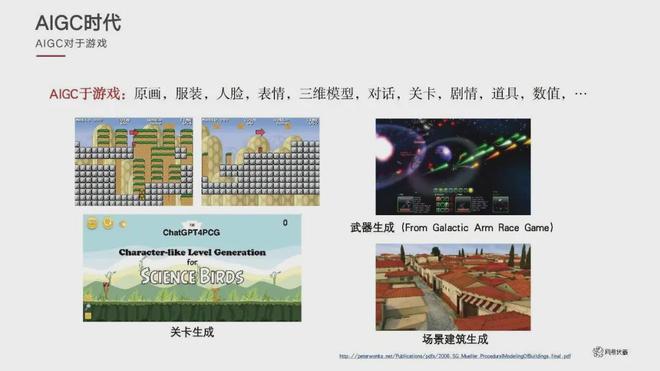
Tencent, on the other hand, has consistently explored technologies related to large-scale NPC production and the diversification of virtual city scenes, investing significantly more in production processes.
37 Interactive embarked on a full-chain AI application path for game development and operation from the outset. Currently, it has independently developed nine mid-tier products and established a mature game industrialization pipeline—
37 Interactive's AI products can participate in various sub-processes such as planning, art, technology, testing, promotion, and operation, covering almost all aspects from development to publishing.
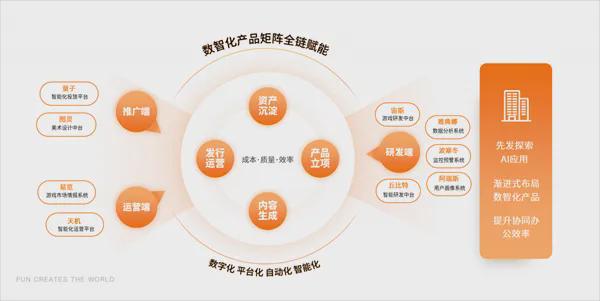
According to Wang Chuanpeng, Vice President of Data at 37 Interactive's Technology Center, AI's empowerment of games has now permeated multiple scenarios. It is not just a tool for enhancing efficiency but also enhances gamers' willingness to consume and participate, thereby enhancing user experiences.
02
Accelerating the AI + Game Race
AI plays a pivotal supporting role in improving production efficiency.
At this forum, Pang Dazhi, Vice President of Netease, stated that the gaming industry has always been recognized as the best testing ground for AI technology and the forerunner in perceiving and adapting to the impact of AI.
'Taking Netease as an example, we currently utilize AI technology to enhance work efficiency in multiple critical areas such as speech generation, original painting creation, motion capture, and model generation. We believe the next step for the industry is to fully tap AI's potential and share its benefits with more industries and even the entire society,' said Pang Dazhi.
Pang further noted that AI-driven quality and efficiency improvements have the potential to help the gaming industry break free from traditional growth constraints and development paths, thereby breaking the 'impossible triangle' where cost, quality, and efficiency have long been difficult to satisfy simultaneously.
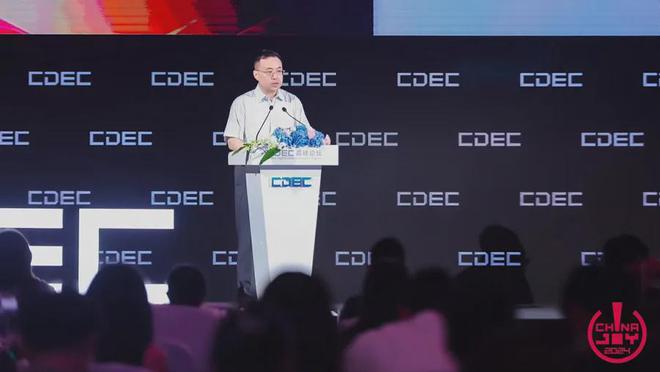
Pang Dazhi, Vice President of Netease
Zhang Wei, Vice President of Tencent, announced that the company had introduced a new self-developed AI engine this year, enabling significant productivity gains of over 40 times in areas like game scene creation and content generation. In the mobile game Naruto Shippuden: Ultimate Ninja Blazing, the large-scale reinforcement learning solution for fighting games directly reduced training time and resources by over 90%.
Meanwhile, 37 Interactive's self-developed art design mid-tier platform 'Turing' has achieved commonly used art functions such as text-to-image generation, image-to-image generation, partial redrawing, and intelligent image expansion.
In the character original painting process, if an artist previously needed 10 hours to complete a drawing, introducing 'Turing' can save 60%-80% of working hours, allowing completion in just 2-4 hours!
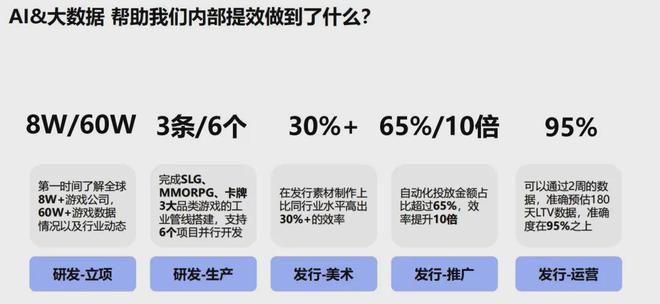
After implementing the 'Quantum - Tianji' system, 37 Interactive helped reduce the time spent by ad placement personnel from 6 hours to just 30 minutes, a more than tenfold efficiency improvement.
To integrate these nine mid-tier products, 37 Interactive also built an internal AI Agent platform, enhancing the autonomous decision-making capabilities and collaborative office efficiency of its digital intelligence products.
Furthermore, the application of AI technology will reduce production costs, which has become a consensus in the gaming industry. Xie Chenghong, Chairman of 3D engine company Layabox, once predicted that AIGC would significantly reduce game development costs and barriers, with a current reduction of about 30% and a potential future reduction of up to 90%.
03
New Possibilities
Beyond improving game development efficiency and reducing production costs, AI offers even greater imaginative space for the future of the gaming industry.
One possibility is that games will find ways to coexist with AI, creating truly open game worlds with thinking AI NPCs where plot developments are determined by users, enhancing game interactivity and offering 'a thousand faces' of gaming experiences.
Taking Netease as an example, on February 15 last year, Netease's open-world martial arts mobile game Ni Shui Han implemented China's first in-game GPT, enabling intelligent NPCs to freely generate conversations with players and provide logical behavioral feedback based on the content, including voice and body movements.
In a demonstration video provided by Netease, a player joins the conversation between intelligent NPCs by 'interrupting.' Two female NPCs are discussing being separated from their husbands by thousands of miles when the player suddenly chimes in with 'long-distance relationships have no future,' causing the NPCs to become flustered.
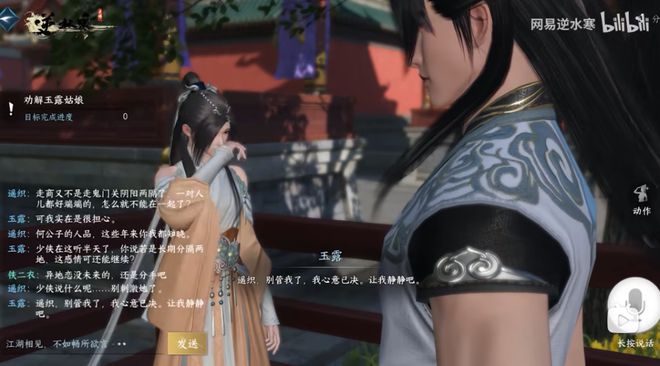
Ni Shui Han
Looking at Tencent, at the recent 2024 Game Developers Conference, it unveiled GiiNEX, a self-developed game AI engine.
This engine covers multiple aspects of a game's entire lifecycle, from development to operation, such as generating NPC dialogues, game narratives, and cityscapes.
Currently, GiiNEX has been integrated into Tencent's popular party game 'Yuan Meng Zhi Xing,' primarily providing players with a series of UGC level design tools. This delights many Yuan Meng players who exclaim, 'No need to build levels; AI handles it all!'

Yuan Meng Zhi Xing
Another future possibility is that as game productivity significantly improves, fully AI-generated games will emerge, where all in-game resources are created by AI.
In this regard, 37 Interactive is already ahead of the curve.
Apart from its nine mid-tier digital intelligence products, 37 Interactive continues to explore novel gameplay mechanics and innovative experiences, including utilizing AIGC to recommend and generate player-preferred images, elements, and gameplay styles, lowering the creation threshold, and helping players participate in content creation while exploring the possibility of creating nonlinear gameplay experiences.
Recently, 37 Interactive launched a story-driven match-three game 'Ming Yue Gong Xin,' whose assets and storyline were driven by AI, marking the company's latest exploration of AI technology's extreme applications.
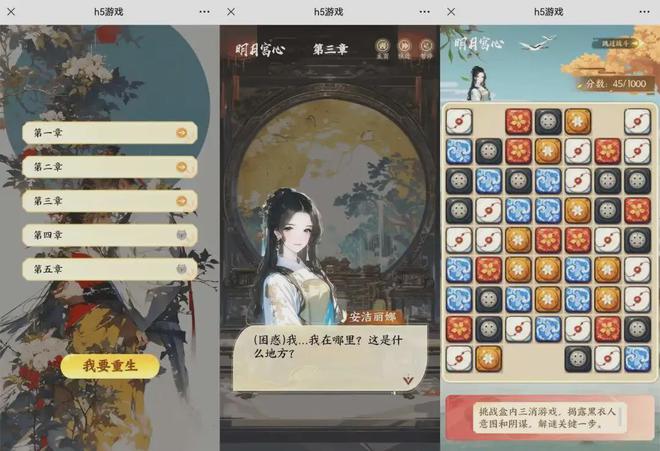
Ming Yue Gong Xin
Apart from autonomous exploration and internal incubation, 37 Interactive also explores AI industry opportunities through technology investments, backing high-quality tech companies like Zhipu Huazhang, Shenyan Tech, Guixin Tech, Chenjing Tech, Leiniao Innovation, Yingmu, and Suiguang.
04
Conclusion
In the past, as technology and games inspired each other, the international competitiveness of domestic games has soared.
According to the '2023 China Game Industry Report' released by the Game Publishing Working Committee of the China Audio-Video and Digital Publishing Association, China's domestic game market generated actual sales revenue of 302.964 billion yuan in 2023, a year-on-year increase of 13.95%, exceeding the 300 billion threshold for the first time.
Specifically, Tencent is the only other Chinese mobile game publisher besides unlisted miHoYo to generate over USD 1 billion in overseas revenue, according to data.ai's ranking of Chinese game companies' overseas revenue.
MiHoYo, which has yet to go public, boosted its overseas revenue by 14% in 2023 thanks to the impressive global performance of 'Genshin Impact' and 'Honkai: Star Rail,' surpassing Tencent to top the overseas revenue rankings.
In the rankings, 37 Interactive's overseas revenue ranks third, after miHoYo and Tencent, firmly establishing it in the first tier of Chinese game companies going global.
According to financial reports, 37 Interactive achieved overseas revenue of 5.807 billion yuan in 2023, forming a global product matrix anchored by MMORPGs, SLGs, card games, and simulation games. Several overseas benchmark products, including 'Puzzles & Survival,' 'Jiao Wo Da Zhang Gui,' '? M,' and 'Cloud City Song,' have performed robustly.
As AI technology permeates deeper into the gaming industry, continuously catalyzing changes, and as major game companies compete and strive to expand, the boundaries of future gaming imagination will be infinitely expanded.
•END•







